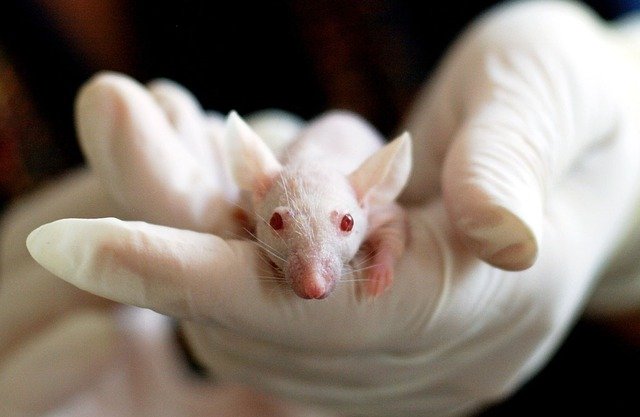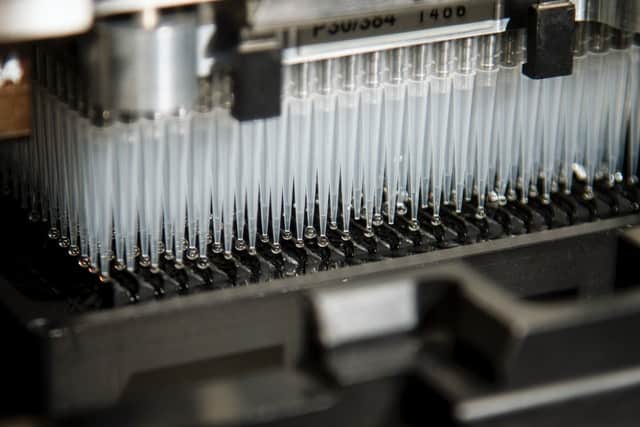
Based on statistics, over 25 million animals are utilized to perform experiments in the USA every year. Mainly creatures are used for mathematics education, biomedical tests, cosmetic, and product analysis.
Proponents of animal testing state that:
- It’s enabled the evolution of several life-saving remedies for both people and animals,
- there’s no alternate way of exploring a comprehensive living organism,
- and – rigorous regulations stop the mistreatment of animals in labs.
Opponents of animal testing state:
- It isn’t warm-hearted to examine animals,
- choice approaches available to investigators can replace medical tests on animals,
- and – creatures are so different from human beings that research of creatures often yield irrelevant outcomes.
Both sides of animal testing come to tilt the scales evenly. It can save countless individual lives, but at the value of the lives of creatures. Eventually, taking the positives and negatives into account, animal testing highlights the fine line between ethics and functional need. The best choice is subjective to each person’s senses.
Animal Experimentation Pros and Cons
Should animals be used for research? Though it’s much better to experiment with animals than humans, they go through something when they reveal shouts and distress. Regrettably, it’s lawful and acceptable to do animal trials. Whether animal testing is bad or good depends on every person. This guide will examine the benefits and pitfalls of medical tests on animals.
Why Animal Testing is Good: Key Pros
Life-Saving Drugs and Vaccines
Research performed on creatures can save countless lives.
The landscape of contemporary medicine would be vastly different without animal testing from the combination. For instance, a study on dogs where the creatures’ pancreases were eliminated led to insulin detection from the early 20th century.
The polio vaccine — created for human use just once we tested it on animals — has helped decrease this dreaded disorder to near-irrelevance.
Developments in breast cancer, brain trauma, leukemia, cystic fibrosis, malaria, multiple sclerosis, and tuberculosis are applied because of animal tests. For example, without assessing chimpanzees, there would not be a hepatitis B vaccine.
Because of this, animal testing is deemed crucial for enhancing human health, and it’s why the scientific community and several members of this public encourage its usage. Some people are against animal experiments for cosmetics, but encourage animal testing for pharmaceuticals and later medicines.
Alternative procedures for analyzing don’t mimic humans in precisely the same manner.
Scientists usually use animals for testing, since they believe them like people. Researchers understand the constraints and limitations, but testing is completed on animals, as they’re regarded as the nearest and finest match for implementing this information to people.
All creatures have the same essential internal organs, and these all fall prey to the same overall disorders, like heart disease and different cancers. For all these reasons, physicists could apply the outcomes of a panoply of therapeutic tests on animals to human beings and are more convinced when it’s time to experiment with people straight in scientific cases.
Product Safety
Animal testing helps ensure medication protection and other materials that people might be exposed to every day, like cosmetics. The benefits decrease the odds of adverse reactions, such as itching, rash, or perhaps death, during individual clinical experiments. Animals used for this security testing are generally not killed and stay relatively healthy.
Why Animal Testing Should Be Banned: Key Cons
Inhumane Treatment in Animal Experimentation
Any conversation about animal analysis’s pros and cons ought to admit that creature research topics involve subjecting animals to what could aptly be called torture.
Animals are routinely force-fed, made to inhale poisonous chemicals, deprived of water and food, physically restrained for prolonged intervals, and burned. In 2010, the US Agriculture Department reported that nearly 100,000 animals felt pain during experiments, although not restarting any anesthesia.
Most firms claim they hurt no critters during animal tests, but there’s a shadow of a doubt. Testing possibly comprises the jabbing of storage, needles to cramped spaces, and shortage of quality/quantity of nourishment.
Some animals may pass away during the experimentation or be murdered after their usage, and others might lose their limbs, vision, hearing, muscle building, etc. Occasionally, lots of the substances analyzed may never see acceptance of public consumption and usage; these creatures may have experienced such treatment in vain, seeing no immediate benefit to individuals that happened.
Ethics
Since animals can’t volunteer themselves for analyzing and cannot voice their views, some think it’s only ethical to examine subjects who willingly agree to self-testing.
Some materials analyzed may not be utilized for anything helpful.
The unfortunate part is that several of these creatures received evaluations for materials that won’t ever see public or approved consumption and usage. The creature testing aspect that many viewpoints as a significant drawback against the clinic, seem the creature died in vain since no immediate benefit to people happened.
Insufficient Applicability
Among the primary arguments against a medical test on animals is that it is merely a waste of renewable energy and sources. In addition, the outcomes of tests performed on other species frequently can’t be extrapolated to people.
Accuracy
Although testing on animals is an ideal alternative to real people, there’s still a significant margin of mistake, and a few folks still consider animal testing to be undependable.
The response of medicine in an animal’s body differs considerably from a man’s reaction. Since animals have unusual surroundings, they’ll be under pressure. Thus, they will not respond to the medication in precisely the same manner as their prospective response in a pure atmosphere.
It’s costly
Another disadvantage of animal testing is the cost. Animal testing is more expensive, as you have to cover meals, housing, upkeep, and the first price of breeding/buying the creature.
Animal testing may happen over once and for months, which means it might incur extra expenses. In addition, some businesses breed animals particularly for analysis, and creatures can be bought through them.

Alternatives to Medical tests on Animals
While companies can’t satisfactorily do much scientific research with no animals, commercial security testing, like makeup companies, is being performed without critters’ use. Meanwhile, enhancing the well-being of lab animals, such as supplying an “enriched environment” for rats instead of keeping them isolated from standard lab cages, can ease the suffering of animals used in the analysis.
Conclusion
Animal testing — taken here to suggest using animals to research additional human issues like medication efficacy and the safety of items like makeup — is a job fraught with controversy and complicated ethical arguments.
Animal experimentation has obvious and indisputable benefits to humanity, for instance, the development of drugs to fight deadly diseases. But, simultaneously, some experimental subjects animals to cruel processes, offsetting, in the opinion of animal-testing competitions, any advantages of animal testing to people.
Animal testing includes both positives and negatives. For example, it’s among the best methods to find new drugs and vaccines. However, because animals can’t speak for themselves, it’s fierce considering they also feel discomfort.
Should we use animals for scientific or commercial testing? While medical tests on animals have many profits and harms, the moral aspect overshadows both of them. Thus, emotion could be the best deciding factor in whether someone considers animal testing advantages to outweigh the practice issues.





